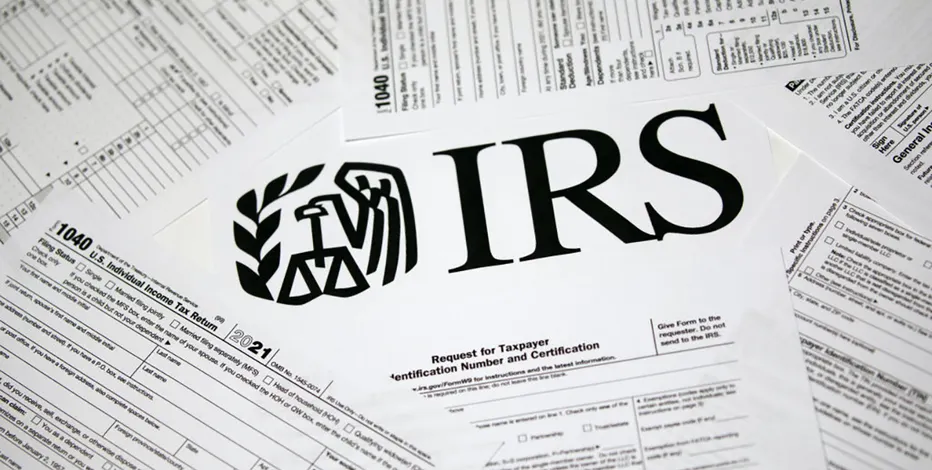
A Comprehensive Guide about Annual Tax Returns in the U.S.
Filing an annual tax return is a crucial task for individuals and businesses in the U.S. It not only helps you stay compliant with the law but also gives you an opportunity to claim refunds, deductions, or credits. Let’s take a closer look at what annual tax returns entail, how to file them, and why they matter.
Posted By Premium Corporate Solutions, October 07, 2024
What is an Annual Tax Return?
An annual tax return is a document filed with the Internal Revenue Service (IRS) or state tax authorities that reports your income, expenses, and other tax-related information. The goal is to calculate your tax liability or the amount of money you owe the government in taxes. Depending on your financial situation, you may also be eligible for a tax refund, money returned if you overpaid during the tax year.
For businesses, filing taxes may also involve reporting profits, losses, and other financial details that affect tax obligations.
Who Needs to File?
The IRS requires most individuals and entities, including businesses, to file a tax return if they earn above a certain threshold. Here’s a quick breakdown:
- Individuals: U.S. citizens or residents who earn income, whether through a job, self-employment, investments, or other means, typically need to file a federal tax return.
- Businesses: Companies of all sizes, from sole proprietorships to corporations, must file annual returns detailing their financial performance. The type of tax return depends on the business structure.
- Foreign Residents and Expatriates: Even if you live outside the U.S., you may still be required to file a tax return if you are a U.S. citizen or green card holder.
Key Components of a U.S. Annual Tax Return
Here are some crucial elements you’ll find on an annual tax return:
- Income: This section includes wages, dividends, capital gains, business income, and other earnings.
- Deductions: Deductions reduce your taxable income. Standard deductions include mortgage interest, student loan interest, and charitable donations.
- Credits: Tax credits directly reduce the amount of tax you owe. Examples include the Child Tax Credit and the Earned Income Tax Credit.
- Payments include taxes you have already paid through withholding or estimated payments. If you paid more than your liability, you’ll receive a refund.
- Other Forms: Depending on your situation, you may need to attach additional forms for capital gains, foreign income, or business-related expenses.
When Are Taxes Due?
Federal tax returns are typically due by April 15th of each year, covering the previous calendar year. If this date falls on a weekend or holiday, the deadline is moved to the next business day. You can file for an extension if necessary, but any taxes owed must still be paid by the original due date to avoid penalties.
For businesses, filing deadlines may differ based on your business structure:
- Corporations: Generally file by March 15th, though an extension can also be requested.
- Sole Proprietors and Partnerships: Usually follow the same April 15th deadline as individuals.
How to File Your Tax Return
There are several ways to file your annual tax return:
- Electronic Filing (e-file) is the most popular and efficient method. The IRS provides free filing options through its Free File program for those who qualify. Tax software like TurboTax, H&R Block, or even working with a professional tax preparer can make the process easier.
- Paper Filing: While less common nowadays, you can still file a paper return by mailing the completed forms to the IRS or your state’s tax authority.
- Hiring a Tax Professional: If you have a complex financial situation, hiring an accountant or tax preparer may be wise to ensure compliance and take advantage of all available deductions and credits.
Common Tax Filing Mistakes to Avoid
- Missing the Deadline: Filing late can result in penalties and interest on unpaid taxes.
- Incorrect Information: Double-check your Social Security Number, bank account information, and income details to avoid delays or rejections.
- Overlooking Deductions and Credits: Many people miss out on valuable tax breaks by failing to claim deductions or credits for which they are eligible.
- Not Filing at All: The IRS can impose steep penalties if you owe taxes and fail to file. In severe cases, they may take legal action against you.
What Happens If You Don’t File?
Failing to file your tax return or pay taxes owed can have serious consequences:
- Penalties and Interest: You may incur penalties for not filing and interest on unpaid taxes.
- Seizure of Assets: In extreme cases, the IRS can place a lien on your property or garnish wages to collect unpaid taxes.
- Loss of Refund: If you are due a refund and fail to file within three years, the IRS keeps the money.
Final Thoughts
Filing an annual tax return is essential to financial responsibility in the U.S. Whether you’re an individual or a business owner, understanding the process can save you time, money, and headaches. Make sure to file on time, keep your records organized, and use the many tools and resources available to simplify your filing experience.